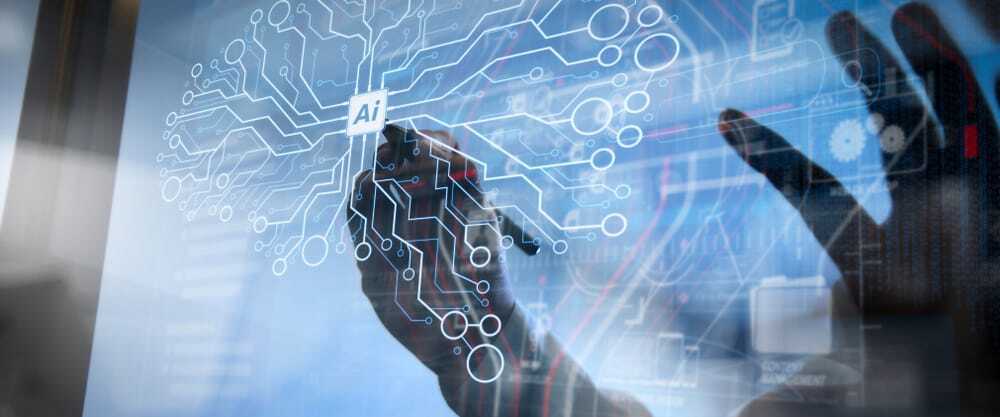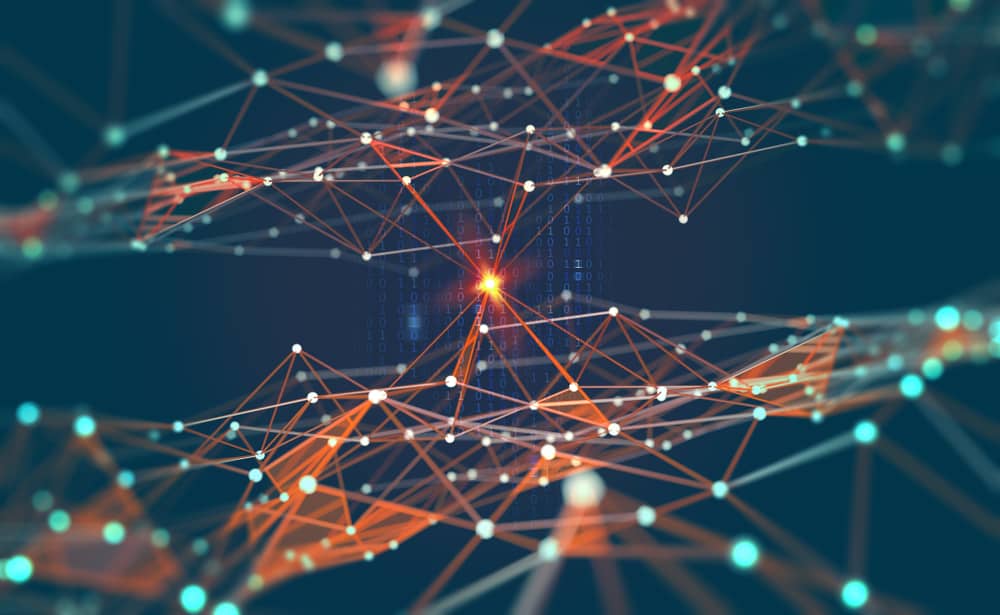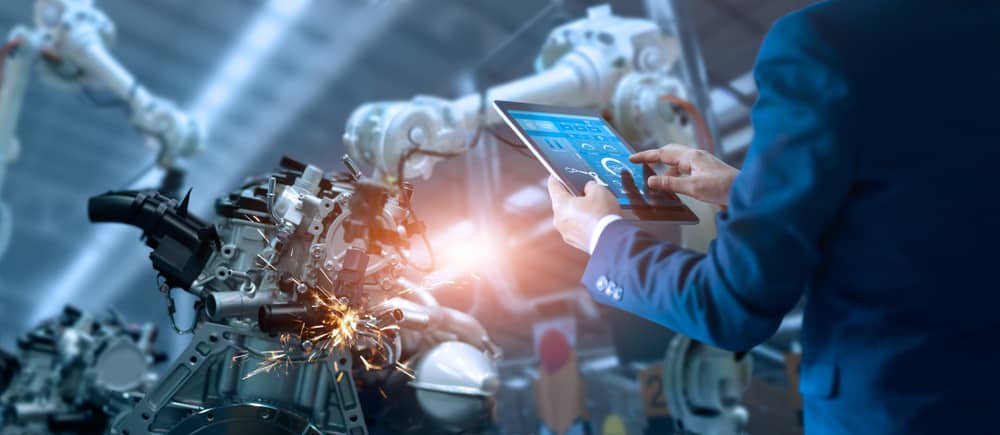How artificial intelligence will change the world
Will AI help the world or hurt it?
Like any controversial subject, there will always be people who are for it, and those that are against it. Artificial Intelligence is no different. In fact, as new ai tools are introduced, and the news around them grows, so the division between the two camps will grow with it.
Many market research analysts say that AI has the potential to bring about numerous positive changes in society, including enhanced productivity, improved healthcare, and increased access to education. But we need to adapt right now.
Others will say, mostly those working in human work types of jobs that are manually repetitive, that ai and robotics is a disruptive force and when it comes to the future of jobs it merely serves to steal jobs.
But robots and ai technologies can and will create a great many new vocations and help solve complex problems and make our daily lives easier and more convenient.
The jury is not yet out on this, but the leaning is more toward ai being a positive force rather than a negative one.
How will AI affect jobs and the economy?
McKinsey global institute says that at the global average level of adoption and absorption and advances in ai implied by their simulation, AI has the profound impact to deliver additional global economic activity of around $13 trillion in the foreseeable future and by 2030, or about 16% higher cumulative GDP compared with today.
This amounts to 1.2% additional GDP growth per year. If delivered, this impact would compare well with that of other general-purpose technologies through history. This will mainly come from substitution of labor by automation and increased innovation in products and services.
The same report went on to say that By 2030, the average simulation shows that some 70% of companies will have embraced the ai revolution and adopted at least one type of AI technology but that less than half will have fully absorbed the five categories.
Forbes say ai has the potential to be among the most disruptive technologies across global economies that we will ever develop.
How will artificial intelligence affect society and future?
Forbes says that the future of AI brings endless possibilities and applications that will help simplify our lives to a great extent. It will help shape the future and destiny of humanity positively, whilst Bernard Marr & Co says that the transformative impact of artificial intelligence on our society will have far-reaching economic, legal, political and regulatory implications on all types of jobs and industries that we need to be discussing and preparing for.
Others in the know say that AI has the potential to bring about numerous positive changes in society both now and in the future, including enhanced productivity, improved healthcare, and increased access to education.
AI-powered technologies can also help solve complex problems and make our daily lives easier and more convenient.

How Will AI Affect Jobs - How many jobs will AI replace by 2030
Artificial intelligence (AI) could replace the equivalent of 300 million full-time jobs, a report by investment bank Goldman Sachs says. It could replace a quarter of work tasks in the US and Europe but may also mean new jobs and a productivity boom.
And it could eventually increase the total annual value of goods and services produced globally by 7%. The report also predicts two-thirds of jobs in the U.S. and Europe “are exposed to some degree of AI automation,” and around a quarter of all jobs could be performed by AI entirely.
Researchers from the University of Pennsylvania and OpenAI found some educated white-collar workers earning up to $80,000 a year are the most likely to be affected by workforce automation.
Forbes also says that According to an MIT and Boston University report, AI will replace as many as two million manufacturing workers by 2026.
A study by the McKinsey Global Institute reports that by 2030, at least 14% of employees globally could need to change their careers due to digitization, robotics, and AI advancements
What jobs are most likely to be automated?
1. Customer service representative
Most human customer service interactions are no longer done by phone with human employees manning the lines. Most of the time, the queries and problems of customers are repetitive.
Answering these queries does not require high emotional or social intelligence. Therefore, AI can be used to provide automated responses to frequently asked questions.
2. Receptionists
The majority of companies across the world are now using robots at their reception. Even the calls are being managed by AI now. For example, AimeReception can see, listen, understand, and talk with guests and customers.
3. Accountants/Bookkeepers
Many companies are now using automation and ai for their bookkeeping practices. AI-powered bookkeeping services provide an efficient accounting system and flexibility and security, considering that they are available as cloud-based services.
Using ai algorithms, AI will ensure the data is collected, stored, and analyzed correctly. Using an AI accounting service is significantly less costly than paying an employee’s salary to do the same job.
4. Salespeople
Gone are the days when corporations required salespeople for advertising and retail activities. Advertising has shifted towards web and social media landscapes. The built-in target marketing capabilities in social media allow advertisers to create custom content for different types of audiences.
5. Research and analysis
The fields of data analysis and research are areas that already implement the use of artificial intelligence as a method of streamlining the process and identifying new data without human assistance.
The processing power of modern computers allows for the efficient sorting, extrapolation and analysis of data. As artificial intelligence continues to improve, there may not be a need for humans to play a role in data analysis and research.
6. Warehouse work
Online sales is a steadily growing industry and comes with an increasing need for processes and automated systems that efficiently get orders onto trucks for delivery.One area of focus for streamlining the process has been the use of automation.
Basic automation and artificial implementation in a warehouse allow for easy access to computerized systems to locate packages and direct staff, and future AI may even perform mechanized retrieval and loading to increase shipping capacities.
7. Insurance underwriting
When making assessments on the viability of insurance applicants, the most important work is often in analyzing the data available and applying it within a set of formulas or structures.
Automation can easily complete these tasks and is continually adapting to perform more complicated duties, which may reduce how many underwriters a company requires.
8. Retail
Self-checkout stations at stores are an example of automation in the retail sphere and have gained prominence in grocery stores and big-box outlets. When a company makes use of self-checkout areas, it results from a cost-benefit analysis.
Although allowing customers to scan their own items can increase the instances of theft, the company saves more money by reducing the need for employees working registers.
How to quickly change career
Experts say that ai and machine learning will help workers by creating more occupations than it replaces. That said, in order to ride the wave and build a new career, you have to have procured the skills necessary to get the job done.
If you're exposed to ai and looking to pivot into an AI-focused role, demonstrating your knowledge and experience with AI development can give you an edge.
Why not take a read of our top 10 highest paying AI jobs article here. To acquire the skills to stand out from other would be candidates you should: ramp up your technical skills, complete online courses, understand the industry, gain work experience, and develop your soft skills.
AI will require extensive research and collaboration as it is still an emerging area. Soft skills will help set you apart from other developers who only have technical skills.

Which jobs will not be replaced by ai?
It is widely touted that ai will create more jobs than it replaces. Further to that, many in certain industries will breath a sigh of relief that ai will not threaten their vocation and livelihood.
These are some of the jobs that will not involve repetitive tasks and be prone to disruption. This means that ai will not replace those that perform them in the open labor market.
1. Teachers
Teachers often represent a reference point for many of us. Often, our academic decisions are partly based on how inspiring a particular teacher has been with us in the years prior. For all these reasons, it is almost impossible that we will have a fully digital teaching experience in the Future.
2. Lawyers and judges
These positions have a strong component of negotiation, strategy and case analysis. A lot is based on the personal experience and knowledge of each specialist.
It requires a certain set of skills to be able to navigate complex legal systems and argue in defense of a client in court. There is a human factor involved when it comes down to consider all the various aspects of a trial and take a final decision that could turn into years in prison, in the case of a Judge.
3. Directors, Managers and CEOs
Managing teams inside an organization is a matter of Leadership and this is not a stack of behaviors that can be written down in a code and processed in a linear way.
A CEO is also the person responsible for sharing the company’s mission and value down to the team. It is very unlikely that investors will ever feel comfortable investing in a company managed by robots or algorithms.
4. HR Managers
Although ai does assist in the hiring process to make sifting through CVs so much easier and quicker, Human Resource Managers still cover a variety of very important tasks inside an organization.
Hiring new professionals is just part of their prerogatives. They also are a key position inside the organization for maintaining the staff motivated, detecting early-on signs of discontent, and manage them if possible.
5. Psychologists and Psychiatrists
Although a lot of face recognition technology is currently being used to develop initial AI counseling care and support, given the growing demand, mental health is a very delicate topic. Human touch is essential when it comes down to supporting people to succeed in their lives in all of the aspects that it can entail.
6. Surgeons
For sure, technology has seriously increased the accuracy with whom we are today able to diagnose and detect diseases in any medical report. Micro robotics also enhance the precision of the surgeons when it comes down to operation, enabling less invasive procedures.
But being a surgeon requires the ability to connect with the patient on so many other different levels while taking a vast number of the factor under consideration at the same time. Experience, knowledge, and skills acquired throughout the years are all factors that need to be condensed in a matter of minutes during an operation.
7. Computer System Analysts
No matter how automated we become, there will always be the need of a human presence that can run maintenance work, update, improve, correct, and set-up complex software and hardware systems that often require coordination among more than one specialist in order to properly work.
Reviewing the system capabilities, controlling the workflow and schedule improvements and increase automation is only part of a Computer System Analyst, a profession that is a great demand in the last years.
8. Artists and writers
Writing especially is such an imaginative fine art, and being able to place a specific selection of words in the right order is definitely a challenging endeavor.
So even if AI technically would have the capacity of absorbing the content of most books in the world, in probably any language and come up with a somewhat personal style of communication, the magic and thrill of creating art with words is something that is pretty much going to rest in our domain of competition in the years to come.
How many jobs will be lost to ai by 2026?
The World Economic Forum has estimated that artificial intelligence will replace some 85 million jobs by 2026. Freethink says that 65% of retail jobs could be automated by that year, saying that this is largely due to technological advancements, rising costs and wages, tight labor markets, and reduced consumer spending.
How many jobs will be lost to ai by 2030?
PwC estimates that by the mid-2030s, up to 30% of jobs could be automatable, with slightly more men being affected in the long run as autonomous vehicles and other machines replace many manual tasks where their share of employment is higher.
During the first and second waves, they estimate that women could be at greater risk of automation due to their higher representation in clerical and other administrative functions.

How to embrace AI and learn skills to take advantage of this new technology
You may be wondering how you can start familiarizing yourself with AI in your work to help advance your career. LinkedIn says that the good news is that you probably already have experience with AI whether you know it or not.
Asking voice assistants like Alexa and Siri questions uses AI, for example. Plenty of the apps on your phone also use AI, too. Generative AI, which is taking up all the headlines lately, is really the next step for this technology.
The company went on to say that to stay ahead in the era of artificial intelligence, it is essential to develop new skills and adapt to the changing job market. Here are some strategies for staying ahead in the era of artificial intelligence:
1. Embrace lifelong learning
In the era of AI, it is important to be constantly learning and adapting to new technologies and ways of working. This means taking courses, attending workshops and conferences, and keeping up-to-date with the latest trends in your industry.
2. Develop soft skills
While AI is great at performing routine tasks, it is still far from replicating human emotional intelligence and creativity. Developing soft skills such as communication, problem-solving, and collaboration will be crucial in the era of AI.
3. Be agile
In the era of AI, the ability to adapt quickly to changing circumstances will be key. This means being willing to learn new skills, take on new responsibilities, and pivot to new career paths.
4. Specialize
As AI becomes more ubiquitous, there will be increasing demand for workers with specialized skills and knowledge. By developing expertise in a particular area, you can increase your value to employers and differentiate yourself in the job market.
Learn from a next-gen university which embraces change
If there is one word that you need to take out of the way to transition from the current job market to the new world order of the job market affected by ai, is the word, 'agility'. The other is 'skills' and skills development at that.
Besides learning on the job, which can take a long time and effort for all concerned, many of those looking to switch careers or start a new one, are looking to online next-gen universities that can pivot on a penny and offer the programs at a specific period in time to take advantage of the drive to greater numbers of ai related jobs.
Doing the degree will mean that learners will learn and develop skills based on the latest employer needs and market trends – this is what the 100% online learning university calls their Workplace Alignment Model which is designed to equip those learners with the skills needed and what employers are looking for.
Conclusion
The neigh sayers have seemingly concluded that ai will take millions of jobs and put people out into the street, whilst those that are excited for it and ready to embrace the change are saying that ai has the ability to create more new types of jobs than it replaces.
That said, it would appear that resistance is futile, and that people must accept that artificial intelligence is becoming a part of our everyday lives. Every job role should embrace it, considering the efficient and cost-effective solutions it brings.
It lets people focus on more creative goals by automating the decision-making processes and tedious tasks.Artificial intelligence offers great promise to drive businesses forward, automate manufacturing processes, and deliver valuable insights.
AI is increasingly being used across various industries, including logistics, manufacturing, and cybersecurity. Small businesses have also made rapid progress in creating speech recognition software for mobile devices.
To stay ahead in the era of artificial intelligence, it is essential to embrace lifelong learning, develop soft skills, be agile, and specialize in a particular area. By developing these skills and adapting to the changing job market, workers can thrive in the era of AI and take advantage of the opportunities it presents.










